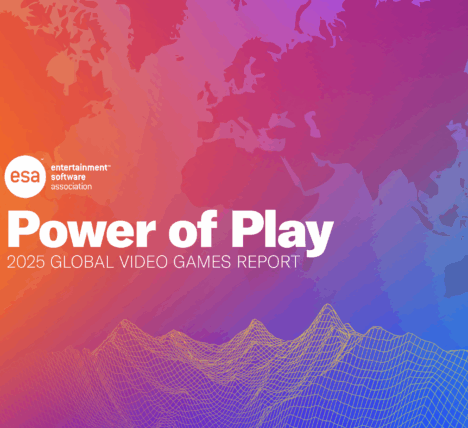Beyond the core purpose of playing games to have fun, there’s a growing recognition of the many benefits of playing video games.
Now more than ever, video games are central to modern culture. Once considered a niche hobby for enthusiasts, today video games bring joy to billions of people of all ages and backgrounds around the world. Video game players are active participants in games as they make decisions, interact with other players, create, learn, relax and enjoy a multitude of other benefits.
The benefits of gameplay were made particularly apparent during the COVID pandemic, when video games helped keep people of all ages home, safe and connected. Even after the COVID pandemic, playing video games is part of a balanced social life for players of all ages and backgrounds around the world.
The video game industry has long supported fun and responsible game play.
ESA member companies have been at the vanguard of promoting and investing in player safety.
Parental Controls
Nearly all video game devices offer parental controls. These tools offer parents and players the ability to efficiently set preferences that are appropriate for their household. These controls enable parents to filter video games by age rating, manage the amount of money their kids can spend playing video games, limit the amount of time their kids can spend playing video games and manage who their kids communicate with online when playing games.
Rating System
For 30 years, the industry has worked through the Entertainment Software Rating Board (ESRB) to ensure that consumers—especially parents and caregivers—have the resources, including voluntary ratings and content descriptors, needed to make informed decisions about video games. The effectiveness of these efforts has been praised by the U.S. Supreme Court and U.S. Federal Trade Commission (FTC).
We have long seen the positive potential of playing video games beyond providing entertainment.
A growing body of research confirms the positive mental, social and emotional benefits of playing video games. The ESA’s 2025 global Power of Play report shows that not only are video games fun, but they help players feel less anxious, less isolated and less stressed. The report presents a compilation of findings from multiple academic and peer-reviewed research papers alongside the results of a survey of over 24,000 players in 21 countries.
Academic, peer-reviewed research also shows that not all screentime is created equal and that playing video games can have a positive impact on mental health.
A 2021 study found that approximately three in four participants report video games are beneficial to their mental health. While, a 2014 study found that children 10- to 15-years old experience lower levels of stress from playing video games.
Studies also show that gamers who play with others online report “stress relief”, “fun challenges”, and “companionship”, similar to being with friends in person.
The results hold true across age groups.
A 2020 study said that “older adults in multiple-player exergames experienced lower levels of loneliness when compared to those in single-player games.”
A majority of video game players find mental stimulation, relaxation and stress relief flows from regular video game play. Video games can help to alleviate anxiety and other mental health conditions.
Some of the latest independent academic studies – which are unique in that they use anonymized player in-game data from video game companies – have shown that playing games can be positively correlated with overall well-being.
Researchers also find that playing video games bolsters key cognitive skills.
One study found that a couple of hours of gameplay a week actually helps improve attention control and reading. It concluded that the effects are long-term, and that action video games strengthen a child’s ability to learn how to learn.
Research demonstrates that video games play a role in fighting dementia and other similar cognitive declines.
Video games can help improve mental acuity and otherwise offset cognitive signs of aging, especially when paired with exercise. Brain training video games improve memory and help older people to manage daily tasks. Video games can also help offset cognitive decline, and they can help manage the onset and assist in treatment of Alzheimer’s disease.
The industry is committed to better understanding the impact of playing games.
ESA member companies engage with researchers and contributes data to studies to deepen the understanding of player well-being.
Some independent research studies indicate that there may be no causal relationship (positive or negative) between time spent playing video games and well-being. Rather, these studies find that the connection between video games and well-being is more about the quality rather than the quantity of play. Motivations for playing, such as socializing, using games as tools for prolonged exercises, aiding temporary routines and mental structure, as well as the player’s pre-existing family and peer relationships, all have a higher impact on well-being than the video games themselves.


















